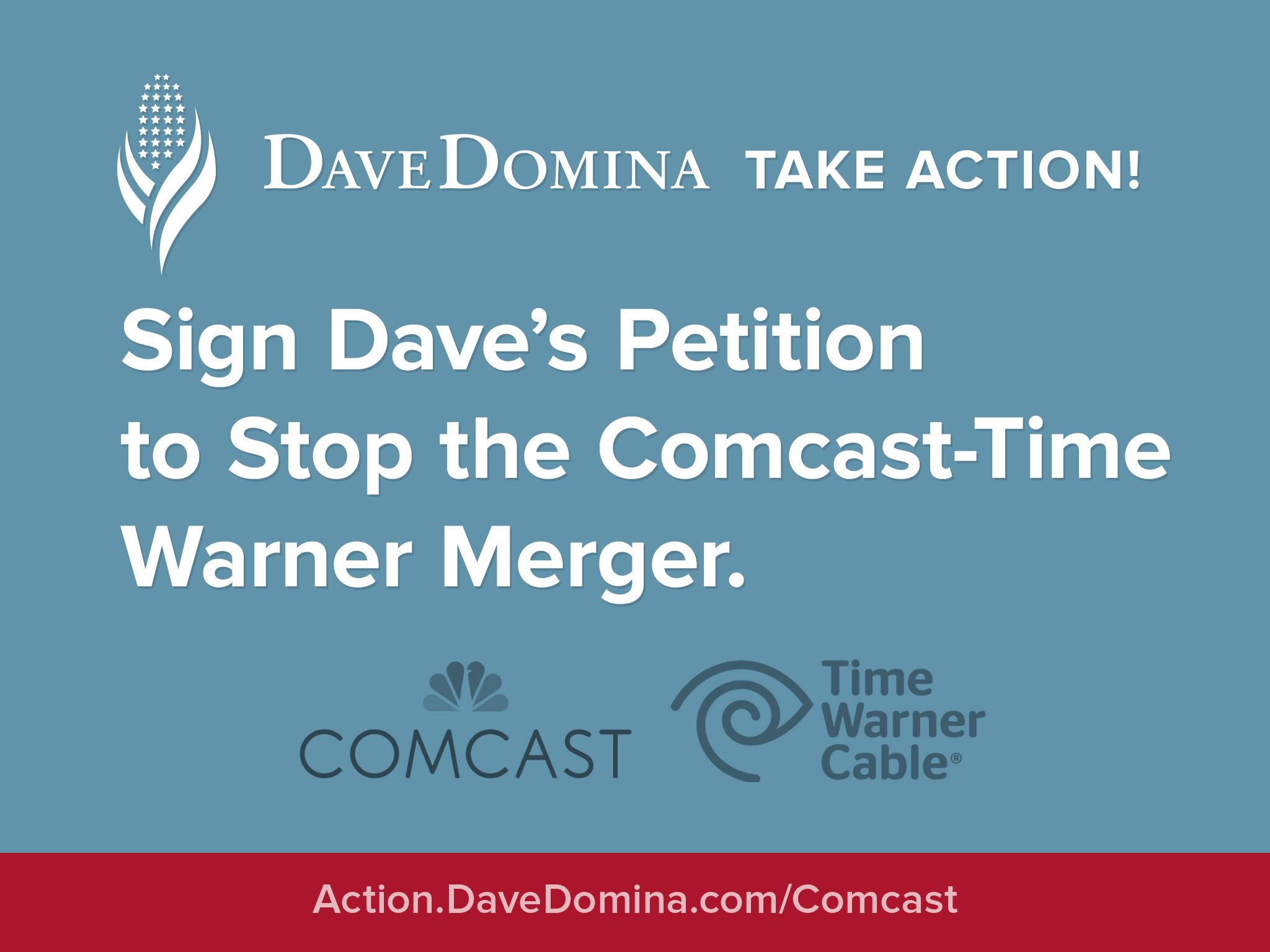Comcast/Time Warner Cable Merger: Disaster for Consumers & Markets
Comcast wants to buy Time Warner Cable. If approved, this deal would create a television and Internet colossus like no other. “I vigorously oppose this transaction and respectfully urge federal authorities to stop it dead!” Dave Domina said, Monday. Domina is a candidate for Nebraska’s U S Senate seat being vacated by Mike Johanns after 1 term in office.
Domina is a longtime opponent of market domination by a couple companies. He has been involved in antitrust enforcement activities. In 2010, Domina was selected to serve on a panel of experts with opposing views at a conference hosted by the U S Attorney General and the U S Secretary of Agriculture.
Comcast is the country’s #1 cable and Internet company and Time Warner Cable is #2. Put them together and you get a single giant controlling a massive share of our nation’s TV and Internet-access markets.
The proposed transaction would put more than 1/3rd of all cable TV subscribers in the United States in Comcast’s hands. It would give Comcast control over more than half of the “triple-play” services that combine TV, phone, and Internet access. Already, Comcast owns Universal Studios, NBC, MSNBC, and perhaps hundreds of cable networks.
“Directly or indirectly, if this transaction goes through, it will affect what people in Lincoln see on their TVs, how they access the Internet, and what they pay for both. I will make a prediction: services will decline, channels included in basic cable service will diminish, and prices will go up in Lincoln!” Domina made these comments at a gathering of supporters in West Omaha Monday morning.
“Comcast is shown how it will behave with its past conduct”, Domina said. He pointed to an example where Comcast-owned CNBC and Bloomberg TV competed. Comcast moved Bloomberg numerically away from other TV news sources. Bloomberg was forced to go to the FCC for an enforcement ruling directing Comcast to restore the channel order and to stop flexing its unfair competition muscles against its competitor.
“It is hard to imagine who would favor the merger” Domina continued. He noted a ConsumerReports.org report concluding that the proposed deal would hurt consumers.
“Combining these two poor-performing companies would create an industry giant that would dominate the marketplace. Comcast would control nearly 60 percent of the cable-TV market and almost half of all high-speed Internet in homes across the country.
How exactly would that make things better? With its increased market power and larger national presence, Comcast would have even less incentive to address consumers’ needs. There’s every reason to believe that things will go from bad to worse.
Over the last four years, Comcast has raised its basic cable rates in some markets by nearly 70 percent. A Comcast executive has even acknowledged that the company can’t promise that customer bills “are going to go down or even that they’re going to increase less rapidly” if the merger is approved.
This latest mega merger is particularly troublesome because Comcast already owns NBC Universal, giving it control over a vast network of broadcast and cable stations. By owning a huge network of cable and broadband pipelines and significant video programming, Comcast would have unprecedented power over what you see, when you see it, and how much you pay.” [1]
Domina often says that America’s markets have shrunk to anticompetitive levels in many sectors of the economy. He favors robust competition with many, many competitors as the best and surest way to grow new and better products, and do so at the most consumer friendly prices.
Enforcing antitrust laws and preventing excessive mergers is not just talk to Domina. In 2004, he led and won a jury verdict of $1.3 billion in a nationwide class action for cattle producers. The verdict was taken away on appeal. Domina and Auburn University economist Robert Taylor have co-authored several articles about the dangers of concentrated markets.
###

